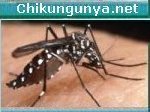Date: Fri, 18 Jan 2008
Source: The Horse [edited]
< http://www.thehorse.com/ViewArticle.aspx?ID=11186>
Antibodies to WNV common in Arab Emirate horses
-----------------------------------------------
Researchers found antibodies to West Nile virus (WNV) in nearly 20 per cent
of horses recently tested in the United Arab Emirates (UAE), according to
Ulrich Wernery, DVM, PhD, scientific director of the Central Veterinary
Research Laboratory in Dubai and author of the Dubai-based study published
in Wildlife Middle East [<http://wmenews.com/>].
The testing was initiated after one horse showed clinical signs of
encephalitis. "We were really astonished, especially to see only one
clinical case," Wernery said. "That means to us that we are dealing with a
very mild strain." The horse that showed clinical signs was treated and
recovered within a week.
A widespread survey of 750 horses in the UAE -- a country that previously
had no history of WNV -- was launched in late 2007 following diagnosis of
the index case in the city of Ghantoot. Results of the enzyme-linked
immunosorbent assay (ELISA) antibody test showed that 19.2 per cent of
these 750 horses had WNV antibodies. Within the immediate Ghantoot area, 84
per cent had antibodies for the disease. Serum from 11 Ghantoot horses was
sent to Cornell University College of Veterinary Medicine for further
testing, which revealed that all the horses in the sample had been exposed
to the virus at least 6 weeks prior to the survey. Exact numbers were not
released, but Wernery said all the horses showed "very high levels" of
antibodies.
"At the beginning we were shocked to see that many horses positive, but now
we are relieved (because) they are protected," Wernery said, cautioning
that this could not be considered lifelong immunity.
Wernery recommended that veterinarians vaccinate all horses traveling in or
out of the UAE -- particularly those in transit between the UAE and North
America -- regardless of their antibody levels.
About two-thirds of American horses have been vaccinated against WNV,
making a similar serosurvey in the United States unfeasible, said Frank
Hurtig, DVM, MBA, associate director of equine veterinary medical affairs
at Merial. However, an estimated 3-10 per cent of unvaccinated American
horses develop clinical signs of disease, he said, and 20-30 per cent of
those cases result in death.
Wernery said 30 per cent of UAE camels tested were also positive for WNV
antibodies. None of the camels have shown any clinical signs of encephalitis.
[byline: Christa Lest'e-Lasserre]
--
communicated by:
ProMED-mail rapporteur Joe Dudley
[Clinical signs of the neurologic disease caused by WNV in horses may
include anorexia, depression, ataxia, muscle twitches, partial paralysis,
impaired vision, head pressing, teeth grinding, aimless wandering,
convulsions, circling, and an inability to swallow. Attitudinal changes
including depression, somnolence, listlessness, apprehension, or periods of
hyperexcitability may be seen. Weakness, usually in the hind limbs, is
sometimes followed by paralysis. Coma and death may occur. Fever has been
seen in some but not all cases. Fatal hepatitis developed in one donkey
with neurologic signs in France.
However, the high incidence of sub-clinical inflections (manifested in the
high prevalence of seropositive horses) in the UAE is not that exceptional.
During an investigation in an equine research facility at the University of
California, Davis, in 2004, a (clinically) apparent to inapparent ratio of
1:4 among infected horses was seen. In 2005, when an equine infection
incidence of 62 per cent was seen, the apparent to inapparent ratio was of
1:17. See Carrie F Nielsen, William K Reisen, et al. High subclinical West
Nile virus incidence among nonvaccinated horses in Northern California
associated with low vector abundance and infection. Am J Trop Med Hyg 2008;
78(1): 45-52.
As to the findings in camels: these are known to be one of the mammal
species readily infected by WNV, though naturally occurring clinically
manifested cases are not known to this moderator. - Mod.AS
The United Arab Emirates can be located on the HealthMap/ProMED-mail
interactive map at <http://healthmap.org/promed?v=23.9,54.3,5 >. - CopyEd.MJ]













No comments:
Post a Comment